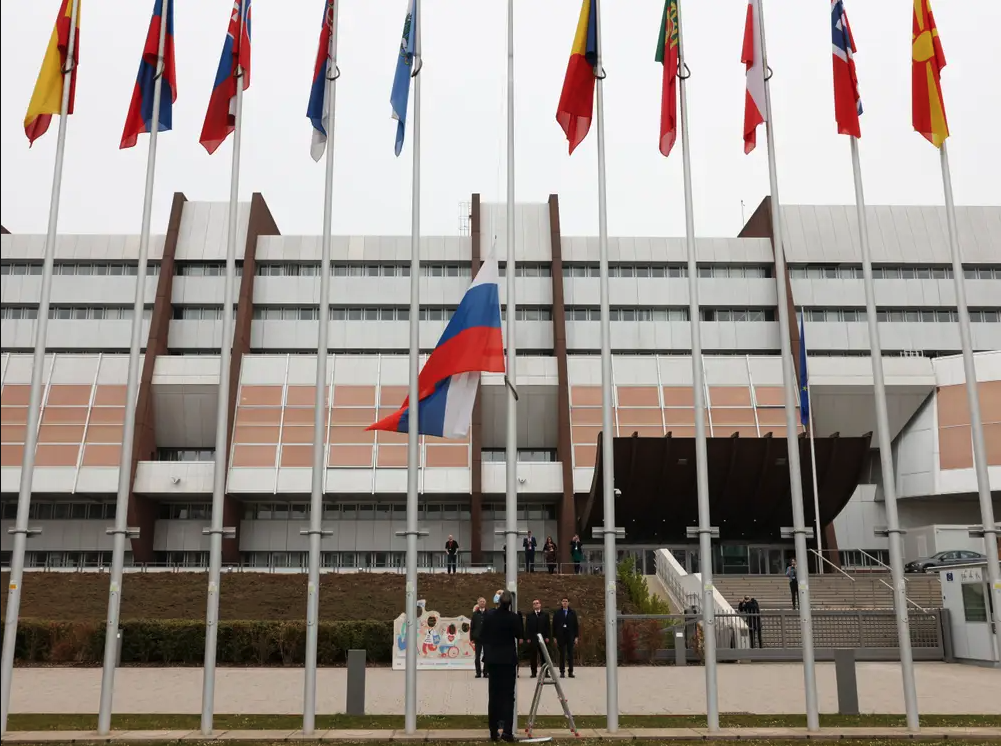.png?h=400&iar=0&w=1400&hash=D59457566553DE5AC04FDFB1D71830BC)
Call for Abstracts – Authoritarian States in Human Rights Institutions: Russia and the Council of Europe
On 13-14 March 2023, a workshop will be hosted at the University of Oslo on the Russian experience in the Council of Europe and the lessons to be learned for the international institutions focused on human rights. The submission deadline for this call for abstracts is 20 December.

Russia’s membership in the Council of Europe (CoE) now has a beginning, middle, and end. How did that relationship change both Russia and the international organization that welcomed it? What can be learned from Russia’s tumultuous experience? This is not only of academic interest, since other CoE Member States also act in ways that increasingly challenge the core values of that organization: democracy, human rights, and the rule of law. How can the CoE respond to states that systematically challenge these values as well as the practical operation of its key institutions?
The CoE was founded with the goal of uniting effective political democracies to promote human rights and the rule of law. With the end of the Cold War, the CoE sought to strengthen those values through eastward expansion to emerging democracies. As suggested by the model of Levitsky and Way (2010), the CoE (among other international actors) sought to promote the strengthening of its core values across newly opened European frontiers by means of “shaping incentives,” “creating domestic constituencies,” and “shaping the distribution of power and resources” favoring human rights and democracy within geographically proximate countries. Much good came of that effort, especially in Russia. But in 2022, an unrepentantly authoritarian Russia, increasingly unbound by the rule of law, became the first state expelled from the CoE. Just as troubling, both the legitimacy and capacity of the CoE’s key human rights body, the European Court of Human Rights, had been weakened by Russia’s inclusion and the problems of addressing other Member States with authoritarian leanings. Now Russia is at war with a CoE Member State (Ukraine), having fought another (Georgia), and retained “peacekeepers” with varying degrees of legitimacy in a further two (Moldova and Azerbaijan).
How should one assess the risks and benefits of welcoming authoritarian-leaning states into inter-state systems designed to promote democracy, human rights, and regional security? What is jeopardized by doing so? What realistically can be achieved by their inclusion? The policy relevance of these questions is very high for Russia, Europe, and elsewhere. The preamble to the European Convention on Human Rights explicitly identifies the strengthening of democracy, human rights, and the rule of law as core objectives; indeed the willingness (and ability) of states to pursue that trio of objectives has served as the baseline for the CoE’s standards for welcoming new members into the organization. Russia, therefore, presents not only a stress test for this international system, but a test more generally of the conditions under which such ambitions may be realized.
This workshop intends to provide a forum for examining these questions with an eye toward assisting scholars in developing their ideas for publication. It is based on a proposal made by Geir Flikke (UiO), Sondre Torp Helmersen (UiT), Jeffrey Kahn (SMU), Marianna Muravyeva and Dmitry Kurnosov (University of Helsinki), and Silvia Steininger (Max Planck) to the Centre for Advanced Study at the Norwegian Academy of Science and Letters. Funding is generously provided by PluriCourts, the Centre for Excellence at the Faculty of Law in the University of Oslo.
Practicalities and Timeline
A lunchtime keynote speaker is anticipated, as is a dinner after the workshop. Limited funds may be available for graduate students and post-doctoral researchers in need of travel assistance.
20 December 2022 – Deadline for the submission of abstracts (max. 500 words)
2 January 2023 – Organizers inform applicants about the results
1 March 2023 – Selected presenters are expected to submit a paper of minimum 4,000 words
13-14 March 2023 – Workshop in Oslo